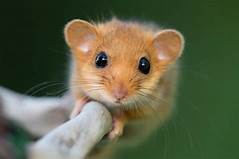What is the Best Exotic Pet?
Choosing the best exotic pet for you depends on your lifestyle, budget, and experience. Here are some popular exotic pets with their pros and cons:

Lizards:
1. Bearded Dragons: These docile and easy-to-care-for lizards are known for their calm temperament and ability to be handled. They require a large enclosure with a basking area, UVB lighting, and a diet of live insects and vegetables.
2. Leopard Geckos: These nocturnal lizards are small and easy to care for, making them suitable for beginners. They require a terrarium with a hiding spot, a heat source, and a diet of live insects.
3. Green Iguanas: These large and arboreal lizards require a spacious enclosure with plenty of climbing space and a diet of fruits, vegetables, and leafy greens. Green iguanas can be challenging to care for due to their specific environmental needs.
Snakes:
1. Corn Snakes: These docile and beginner-friendly snakes are known for their striking patterns and colors. They require a secure enclosure with a heat source, a hiding spot, and a diet of frozen or live rodents.
2. Ball Pythons: These small to medium-sized snakes are known for their docile temperament and easy-to-care-for nature. They require a secure enclosure with a heat source, a hiding spot, and a diet of frozen or live rodents.
3. Royal Pythons: These small and striking snakes are popular among beginner snake enthusiasts. They require a secure enclosure with a heat source, a hiding spot, and a diet of frozen or live rodents.
Turtles:
1. Red-Eared Sliders: These semi-aquatic turtles are popular pets due to their hardiness and adaptability. They require a large enclosure with both water and land areas, a heat source, and a diet of commercial turtle food, vegetables, and insects.
2. Painted Turtles: These semi-aquatic turtles are smaller than Red-Eared Sliders and have a more colorful appearance. They require a similar enclosure setup and diet.
3. Box Turtles: These terrestrial turtles are known for their hinged shells. They require a spacious enclosure with a land area and a hiding spot, a heat source, and a diet of fruits, vegetables, and insects.
Conclusion:
When choosing an exotic pet, it's crucial to consider your ability to provide proper care and the animal's specific needs. Always conduct thorough research, consult with experts, and create a suitable environment before bringing an exotic pet into your home.
Declaration: All article resources on this website, unless otherwise specified or labeled, are collected from online resources. If the content on this website infringes on the legitimate rights and interests of the original author, you can contact this website to delete it.





